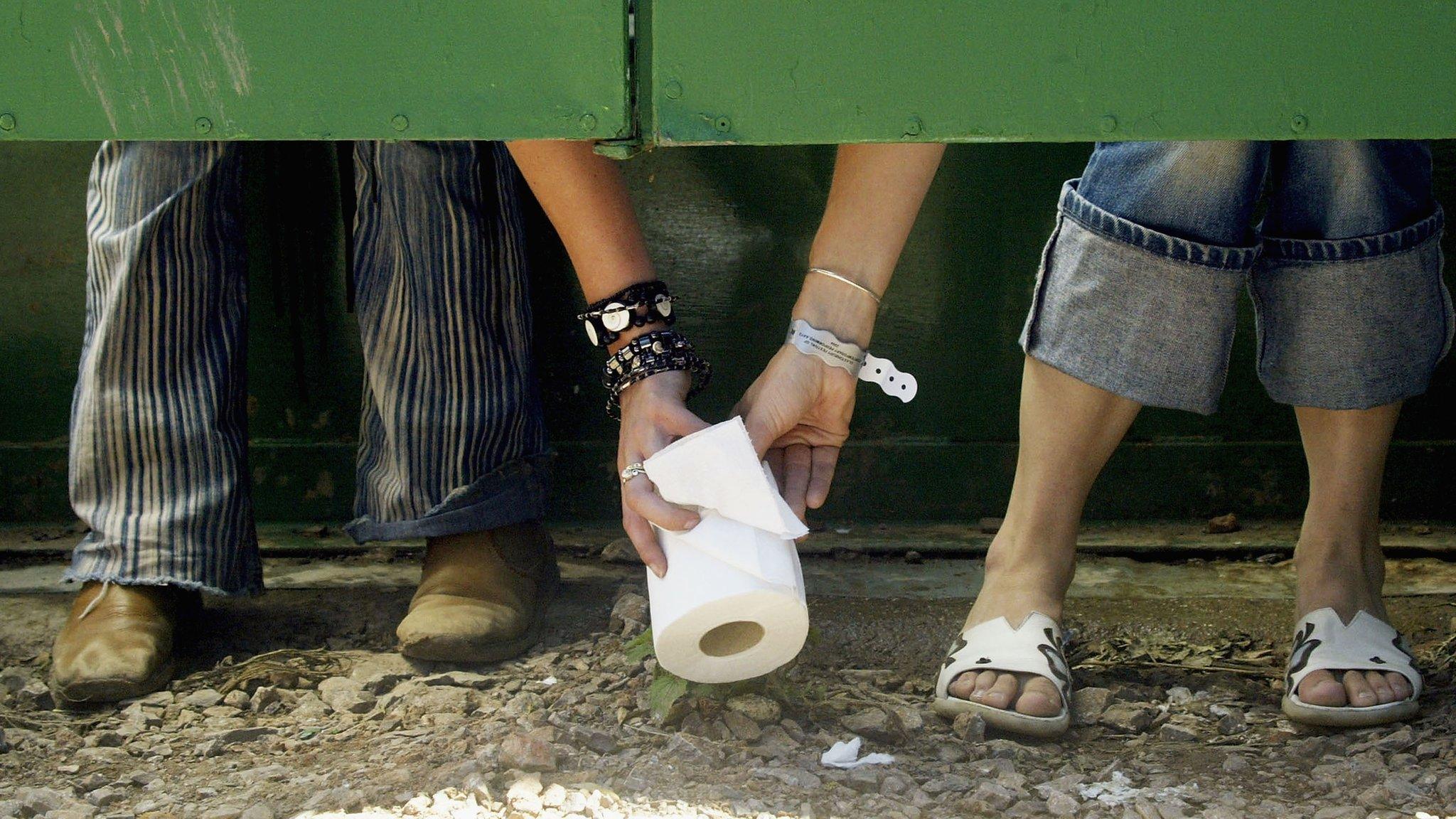Newcastle public toilets campaign launched
- Published
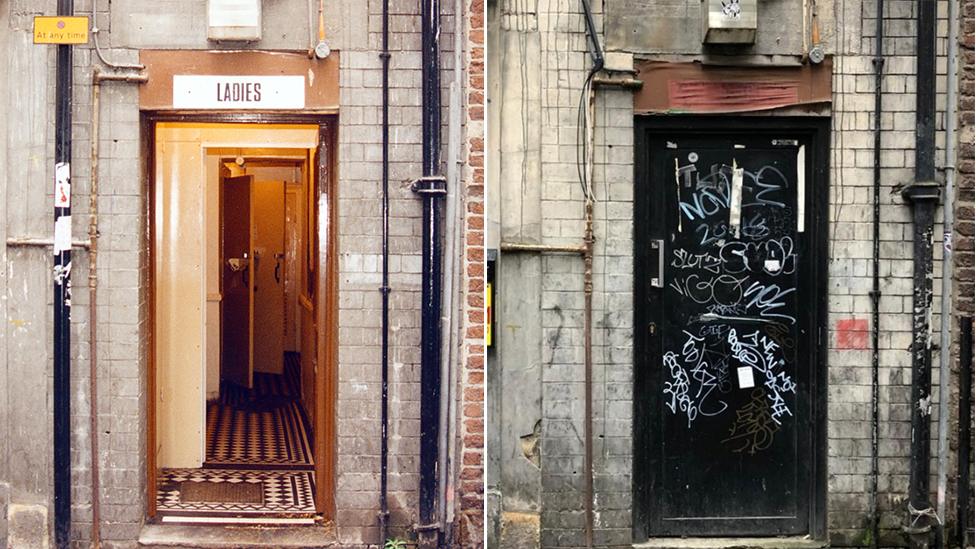
The former women's toilets on High Bridge are now a gin bar
A campaign has been launched to bring back a city's public toilets.
Newcastle City Council said it was forced to close its conveniences to cut costs, with the last shutting in 2012.
The underground Victorian toilets in the Bigg Market and the ladies' loos on High Bridge have been turned into bars.
But tenants' group Acorn said "basic needs", particularly of elderly, disabled and homeless people, and those with bladder and bowel conditions, were not being met.
Hollie Middleton from the group said: "It is impossible to find a toilet in most areas in Newcastle and the ones that there are, like in the Grainger Market, are not open 24/7.
"I think it is hard for anyone to argue against having public toilets," she said.
"Everybody needs them."
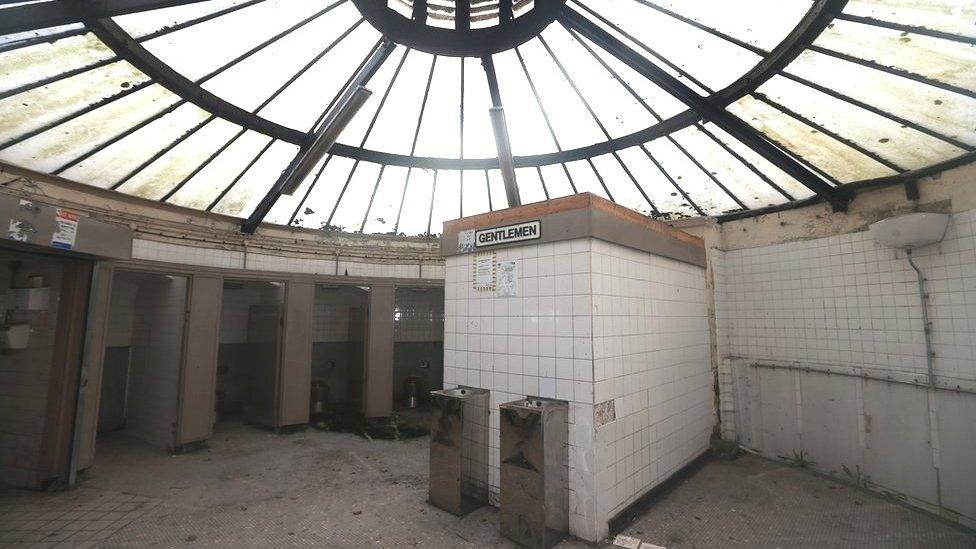
The old Bigg Market toilets had fallen into disrepair
The group is calling on the council to provide new toilets in busy areas like the Quayside and Shields Road in Byker, the Local Democracy Reporting Service said.
The authority said it had secured funding for two, which will be fully accessible, at the civic centre and Northern Stage.
It would "always look to open new toilets when maintenance costs are affordable", it said.
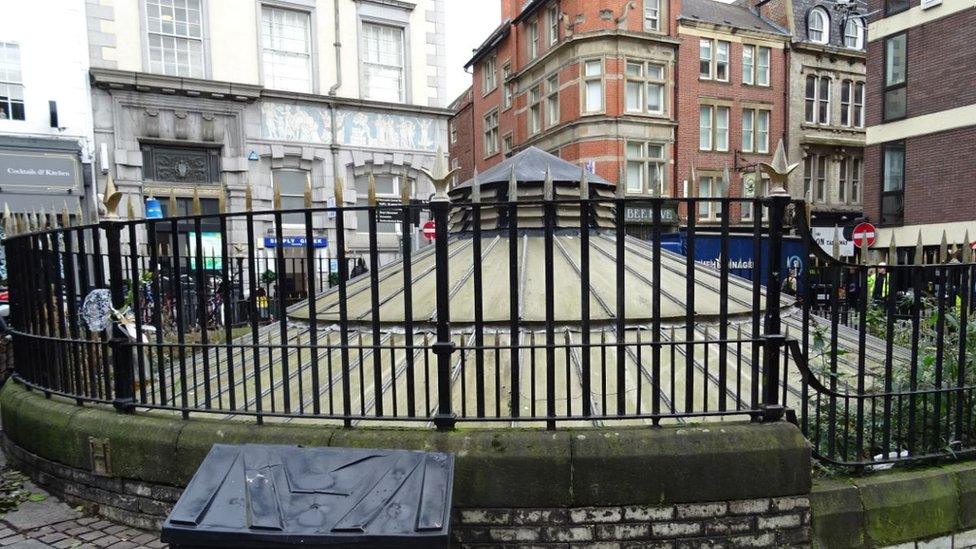
The old Bigg Market toilets were known for the striking roof structure projecting out of the ground
The council said it was not alone in having to close conveniences because it "could no longer afford to maintain" them.
"As an alternative we supported a campaign which encouraged public access to toilets in shopping centres and other city centre places while promoting our remaining toilets in the Grainger Market, City Library and Civic Centre which are still available during opening hours," a spokesperson said.
Ms Middleton said public conveniences should be "accessible, well-maintained and free".
Charges, especially if via contactless card, prevented some people from using them, she said.

Follow BBC North East & Cumbria on Twitter, external, Facebook, external and Instagram, external. Send your story ideas to northeastandcumbria@bbc.co.uk, external.
Related topics
- Published7 February 2020
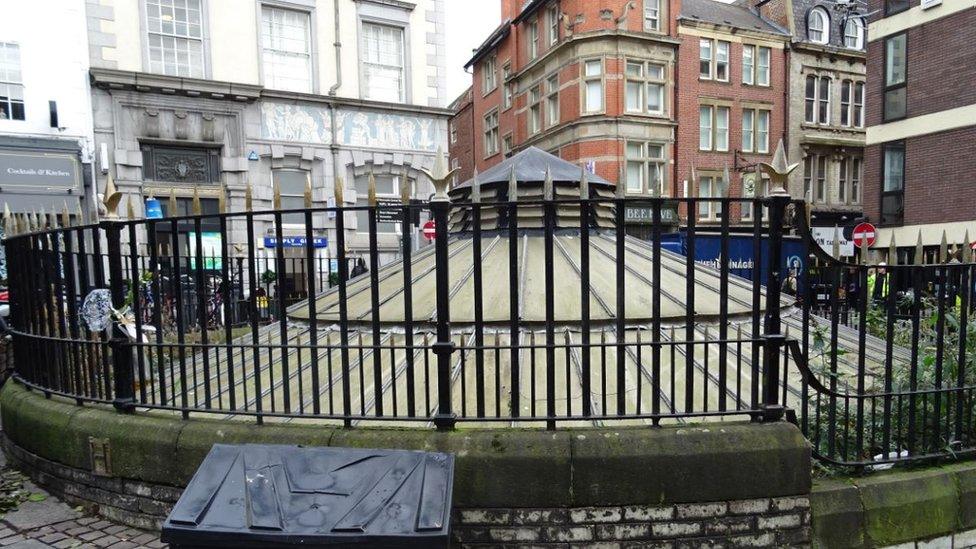
- Published9 July 2020
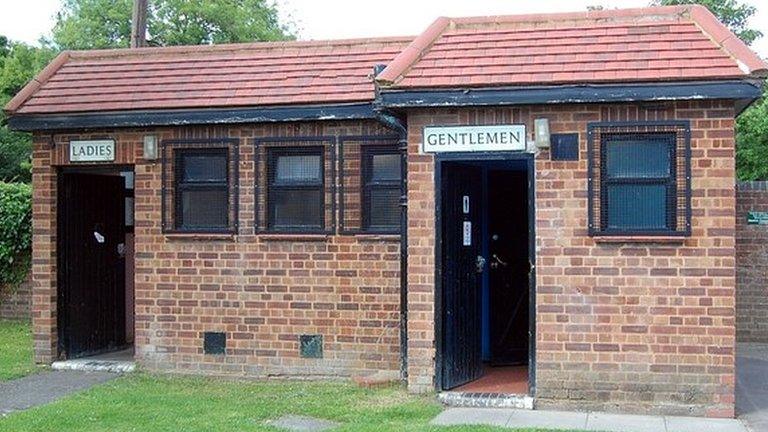
- Published2 September 2020
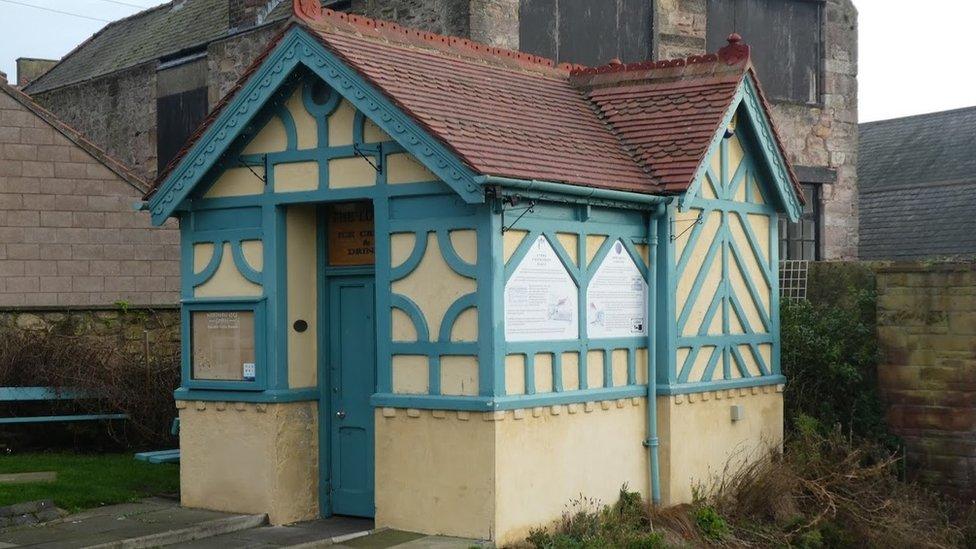
- Published31 May 2016
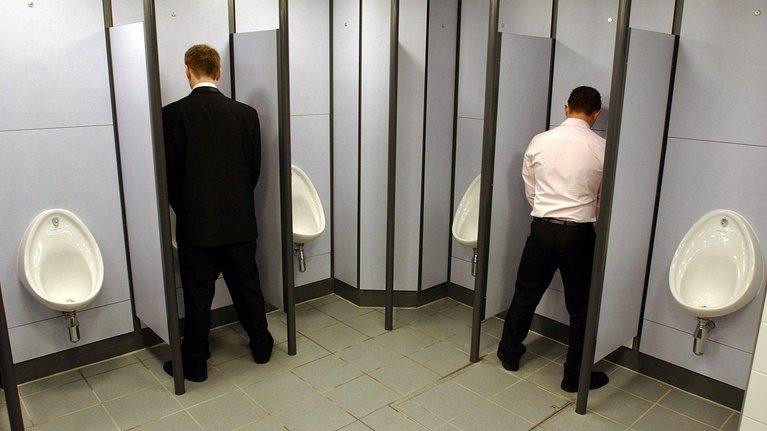
- Published31 May 2016
